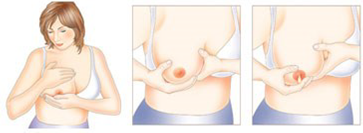Whether you are bottle-feeding your own expressed breast milk, formula milk, or a combination of both, this information will help you do so as safely as possible.
Combining Breastfeeding and Bottle Feeding
If you are supplementing breastfeeding with formula, it’s important to continue giving as much breast milk as possible to maximise its health benefits. If you would like to return to full breastfeeding at any time, speak to your midwife or health visitor for support.
Why Avoid Giving Formula Supplements to a Breastfeeding Baby?
When babies are learning to breastfeed, it’s important to avoid unnecessary formula supplements. Giving formula can make your baby feel full, reducing their desire to nurse, which can then impact your milk supply. The more your baby breastfeeds, the more milk your body will produce to meet their needs.
However, if your baby requires formula for medical reasons, you can still express your milk and continue breastfeeding to maintain and increase your supply. In hospital, if your baby needs a supplement, it should be given using a feeding cup instead of a bottle and teat. A staff member will show you how to cup-feed safely.
Bottle Feeding and Skin-to-Skin Contact
If you have chosen to bottle-feed, offering your baby their first feed while in skin-to-skin contact can help build a close and loving bond.
-to-skin contact means placing your baby directly onto your bare chest after birth. Holding your baby this way for at least an hour, or until after their first feed, helps to:
- Comfort and calm your baby.
- Regulate their heart rate and breathing.
- Support their transition to life outside the womb.
Skin-to-skin contact isn’t just for the first moments after birth—you can continue to enjoy these special cuddles as often as you like!
Responsive Bottle Feeding
Responsive bottle feeding means following your baby’s hunger and fullness cues, just like with breastfeeding. This helps to build a strong bond, helps babies regulate their intake and reduce the risk of overfeeding.
This is especially helpful for babies who switch between breast and bottle.
- How to practice responsive feeding:
✔️ Offer the bottle when your baby shows signs of hunger, such as rooting, sucking on hands, or stirring from sleep.
✔️ Hold your baby close and upright, making eye contact while feeding, instead of lying flat.
✔️ Hold the bottle horizontally so that milk flows more slowly, preventing gulping.
✔️ Encourage your baby to suck actively by tipping the bottle just enough to fill the teat with milk.
✔️ Pause frequently (every 20–30 seconds) to allow your baby to rest and recognise when they are full.
✔️ Avoid forcing your baby to finish a bottle—let them stop when they show signs of being full, such as turning away, losing interest, or slowing down.
✔️ Switch sides during the feed to support eye development and avoid a strong preference for one side.
Responsive feeding can help prevent overeating, wind, and discomfort, making feeds a calmer experience for both you and your baby.




